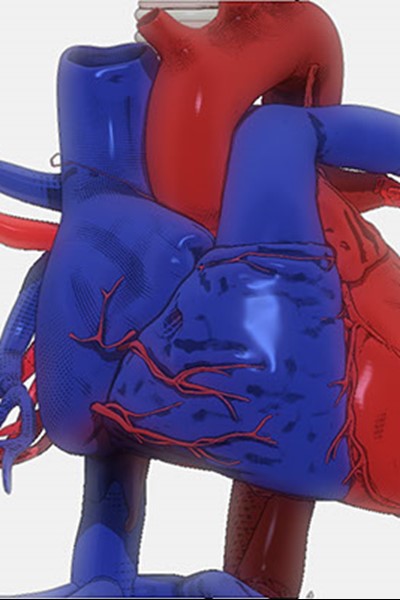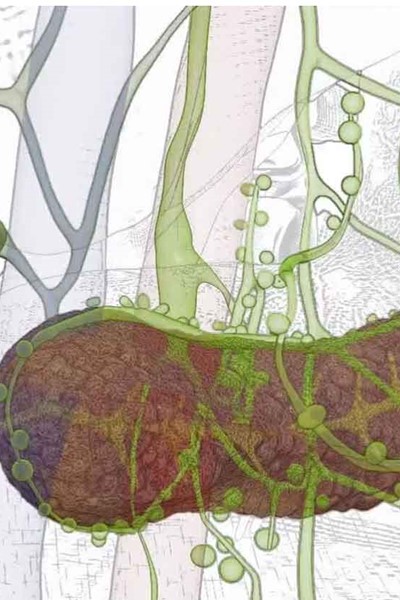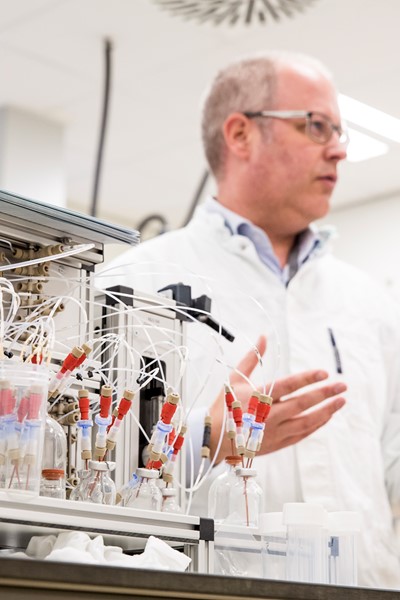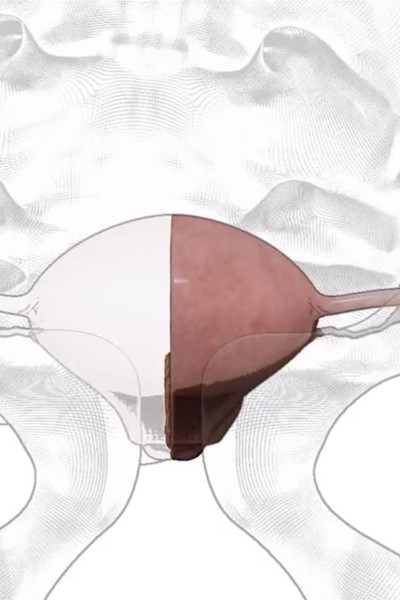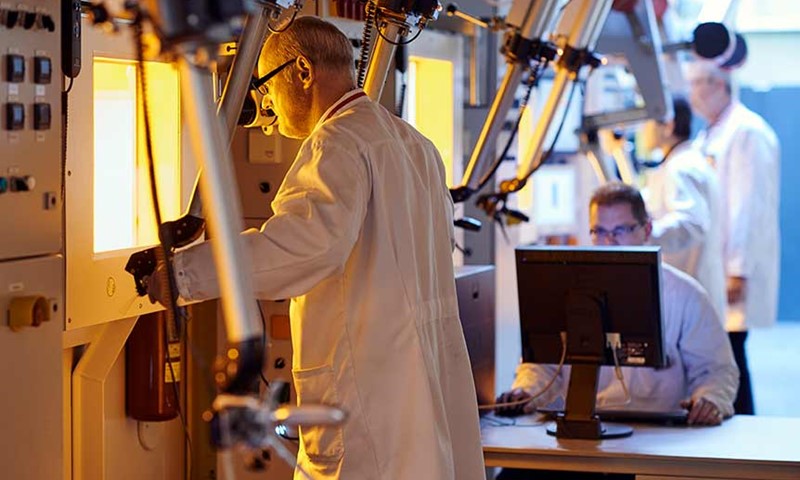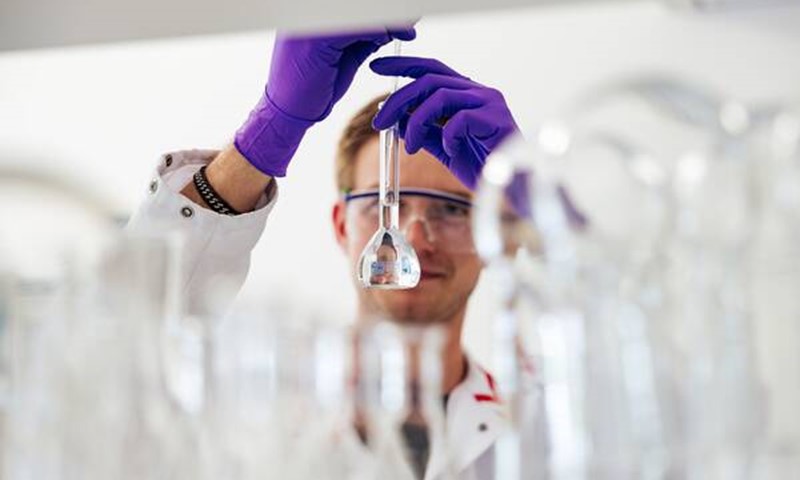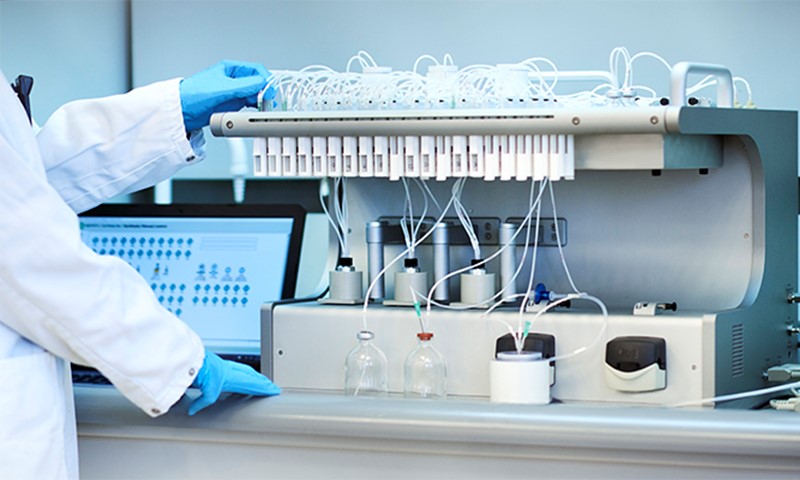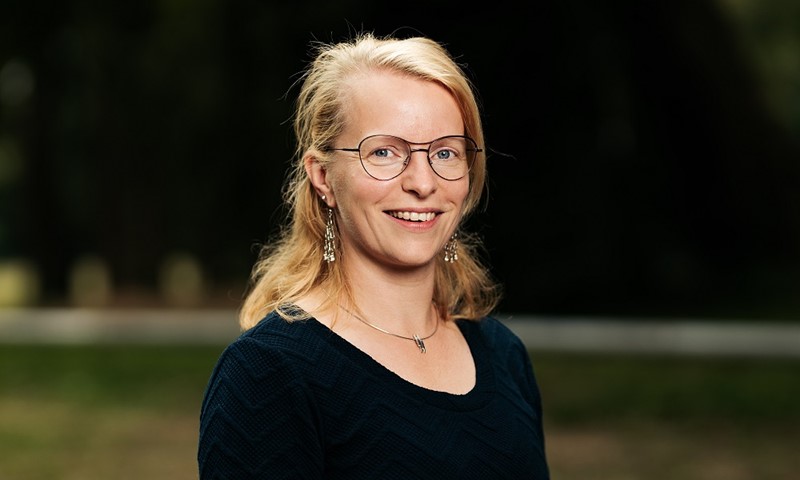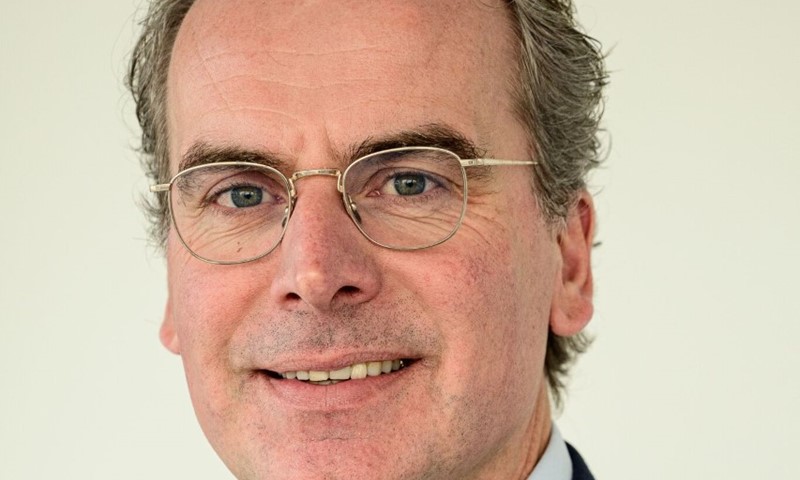Advancing Nuclear Medicine
- Serving 30.000 patients daily
- 1 hour away from important European airport
- Europe's most complete nuclear infrastructure
In a nutshell
Some of our success stories
Being able to predict which cancer patient is likely to respond to chemotherapy with cisplatin has not yet been possible. However, a unique research project between NRG|PALLAS, the Netherlands Cancer Institute (NKI) and Amsterdam UMC may bring about some change.
Producing medical isotopes using only low enriched uranium? After a challenging design process, Curium and NRG are the first in Europe to produce molybdenum-99 with low enriched uranium. Recognizing the commitments made during the Nuclear Summit 2014, to phase out high enriched uranium (HEU) based medical isotopes.
A complex project has been brought to a successful conclusion: the development and installation of a production process for xenon-133 gas.
Recently, we have developed the world’s first fully automated synthesis module, for the synthesis of Pt-195m cisplatin and other platinum compounds
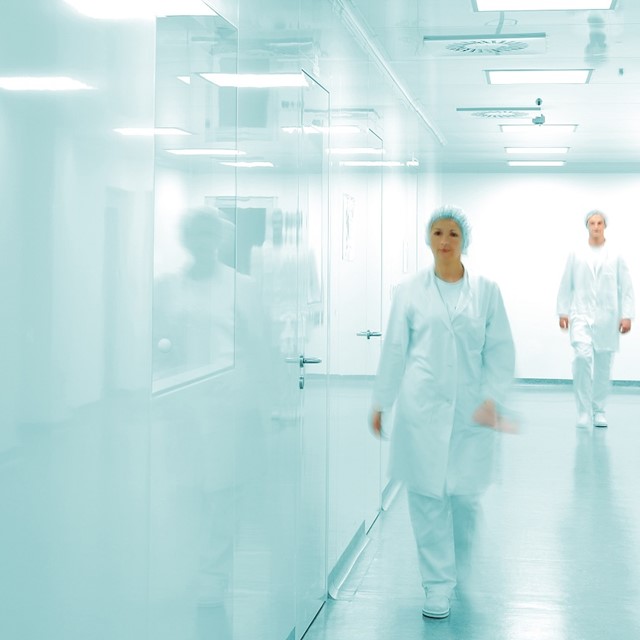
FIELD-LAB: an innovative partnership for the development of nuclear medicine!
FIELD-LAB is a partnership that aims to convert knowledge into new medical solutions. The aim is to accelerate the process from development to the production of nuclear therapies for cancer patients.
- Supply of radiochemical solutions and radiofarmaceuticals to laboratories
- Both research and GMP grade
- Creation of radiochemical processes using innovative isotopes
- Collaboration between academic and industrial partners
- Portal to a fast-growing network with an open innovation culture
Medical Isotopes
NRG PALLAS Medical Isotopes cares for the well-being of people worldwide. Especially for their health. We wish people to live longer, be more vital and feel happier. We believe everybody should have access to advanced treatments. New highly targeted treatments will cause less side effects and improve the quality of life.
We provide solutions to advance nuclear medicine ranging from complete irradiation services for medical isotope production, to access to R&D resources & commercial processing.
Publications
In order to predict the behavior of nuclear medicine in the body after administration, Ramona Bouwman, consultant radiation protection at NRG, has been developing a biokinetic model to do just that.
A decade ago, it was claimed that alpha-emitters are indispensable when it comes to optimisation of strategies for tumour therapy. Over time, this robust statement has become increasingly relevant, which has resulted in research aiming to develop alpha therapy which can be used in the clinic to substantially improve outcomes for cancer patients. This is exactly what healthcare entrepreneur Jan van Bodegom, MD will present at the 3rd Annual Targeted Radiopharmaceuticals (TRP) Summit in Berlin between 7 and 9 December 2021.


